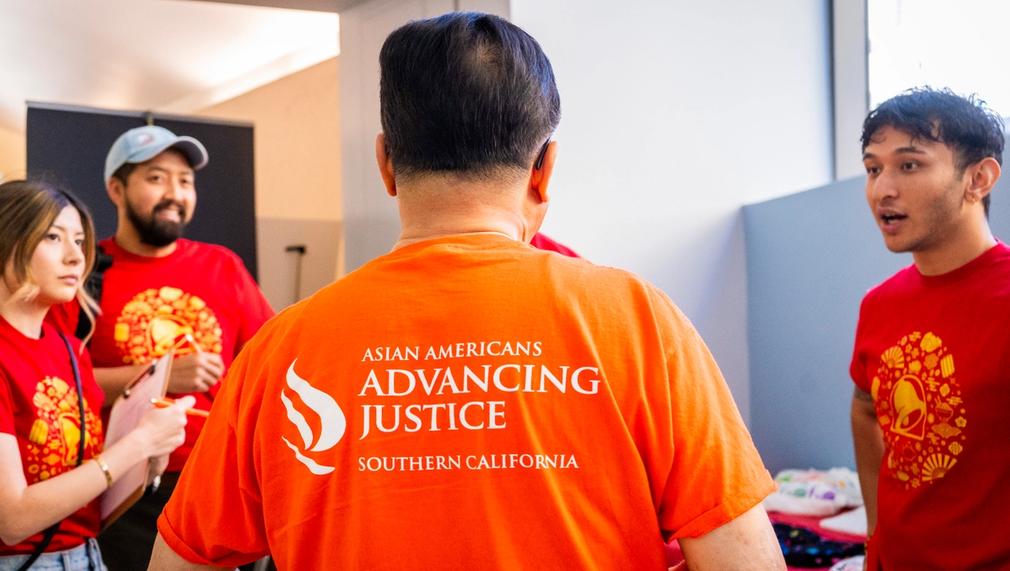Homelessness Prevention in Los Angeles County Asian Immigrant Communities
Asian American and Pacific Islander communities across Southern California continue to struggle in the post-pandemic era of record high rent increases, economic challenges, and anti-Asian discrimination. With the regional housing and homelessness crisis reaching record levels in 2024, Asian Americans Advancing Justice (AJSOCAL) is seeking urgent support to bolster our Housing Preservation Program and keep our most vulnerable AAPI community members in Los Angeles County housed amidst an uncertain economic climate and housing insecurity trends.

What is the primary issue area that your application will impact?
Affordable housing and homelessness
In what stage of innovation is this project, program, or initiative?
Expand existing project, program, or initiative (expanding and continuing ongoing, successful work)
What is your understanding of the issue that you are seeking to address?
2024 is an unprecedented year for the homelessness crisis in Los Angeles County. The pandemic caused ongoing economic instability and growing unemployment in nearly all industries. Post-pandemic, low wage earners such as immigrants and those with limited-English proficiency continue to struggle with economic and housing security. A 2020 study by Columbia University projected a 40-45% increase in homelessness as compared to pre-pandemic numbers. LAHSA’s most recent homeless count demonstrated a 13% increase in LAC post 2020; the steady rise in underemployment is projected to have severe impacts on the region’s homelessness numbers, and the overburdened system of resources. To address this, our Program has provided tenant/eviction legal services to the AAPI community since 2021. There are no other legal service providers offering comprehensive in-language support; given the high rate of limited-English proficiency with AAPIs, this is a necessity and a valuable resource.
Describe the project, program, or initiative this grant will support to address the issue.
AJSOCAL currently operates the Housing Rights Program to address the ongoing tenant and/or eviction defense assistance needs in Los Angeles County (LAC) following the economic downturn caused by the pandemic and related anti-Asian discrimination. This program works with Asian American and Pacific Islander (AAPI), limited-English proficient, and low-income tenants throughout LAC, particularly in densely populated ethnic enclaves. Our program prioritizes those on the verge of homelessness who are survivors of domestic violence, elderly, and those who have been a victim of illegal or frivolous actions by their landlord. In an effort to combat the ongoing national and local homelessness crisis, AJSOCAL’s program provides pre-eviction and eviction legal services to those who are faced with issues that may lead to becoming unhoused. This includes tenant defense services such as assistance in rental disputes and tenant rights education, both 1:1 at monthly legal clinics and through broader community education/outreach. Our services, such as community education, are provided in English and 8 Asian languages, making us a unique and necessary service provider in the region. Our attorneys, legal advocates, and staff are fluent in: Cantonese, Mandarin, Korean, Hindi, Khmer, Tagalog, Thai, and Vietnamese. With support from LA 2050, we will continue this program to provide services to clients residing in LAC communities with a high AAPI population and high rates of poverty and eviction.
Describe how Los Angeles County will be different if your work is successful.
Since its inception in 2021, the Housing Preservation Program has provided 1:1 free legal aid and education to over 28,000 low-income, immigrant, and/or limited-English speaking AAPI tenants, helping over 3,000 people remain in their homes and off the streets. We are proud to serve our community by providing free legal aid to those who need it the most – immigrants, low-income individuals, and/or those who do not understand how to navigate the legal and housing system due to cultural/linguistic barriers. Based on existing measurements, our work has already been proven successful; we seek funding to sustain this important project to keep the most vulnerable Angelinos in their homes. Our goal is to maintain the Program and expand into areas as needed, based on a community needs assessment survey to be completed in 2024. The assessment and available funding will dictate whether the program expands into other areas of work that combat homelessness, such as foreclosure prevention.
What evidence do you have that this project, program, or initiative is or will be successful, and how will you define and measure success?
The Housing Preservation programmonitors the progress and outcomes of work against the goals and objectives set out at the beginning of each year. This is accomplished through evaluation systems such as case success rates, client satisfaction surveys, community need assessments, and evaluation meetings with staff. Based on the most recent programmatic numbers, the program has achieved an 80% client success rate – meaning 80% of the low-income tenants who received legal assistance from AJSOCAL (715 received direct legal assistance)reached a favorable resolution to their housing issue as a result of the program’s involvement.AJSOCAL utilizes a case management program that tracks clients served, as well as their demographics and services received. The program collects data on the number of people and organizations reached through community education and training efforts, as well as impacts on policy.
Describe the role of collaborating organizations on this project.
Single proposal - Not collaborative proposal.
Approximately how many people will be impacted by this project, program, or initiative?
Direct Impact: 715.0
Indirect Impact: 20,000.0